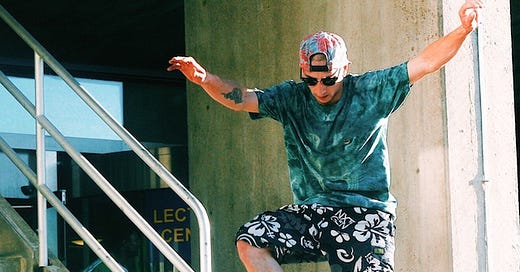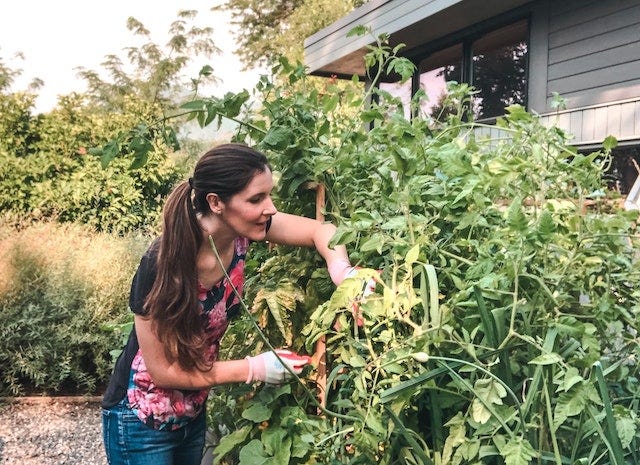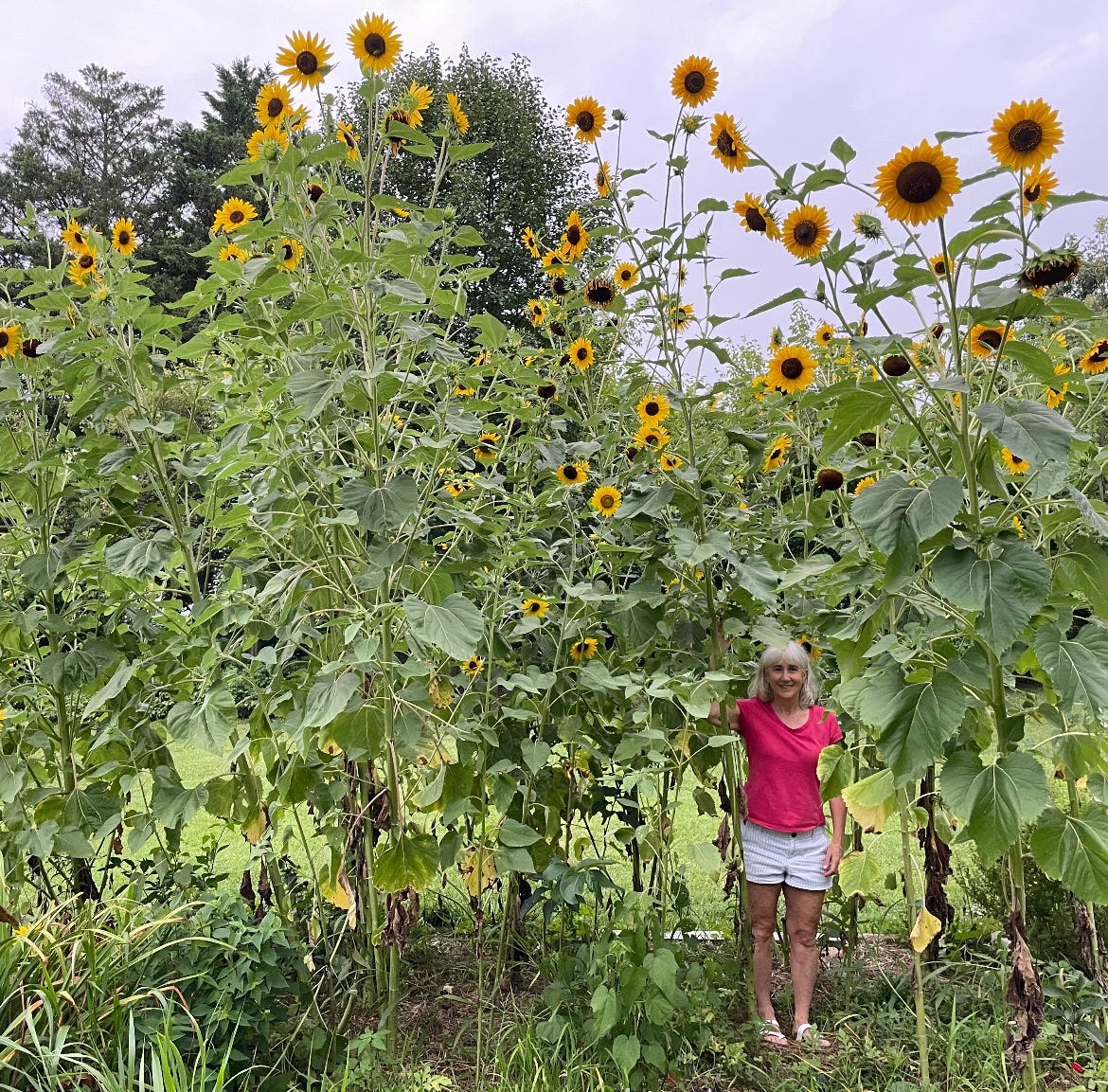Respect, Belonging, and Bleeding: How it works at our house. Also: Your hobby makes you a better parent. Yes, Really.
3 Pillars Parent Newsletter #46
By: Catherine Lynch and Glenn Collins
Dear Awesome Parents,
Welcome to Self Care for Parents, Week 3: It’s true: having a hobby makes you a better parent, AND a bonus article b/c lots of you are living with your adult children: Respect, Belonging, and Bleeding, as it relates to living with a 20 year old. Enjoy, and WELCOME to all you new folks who just joined! We see you and we’re glad you’re here. Got parenting questions? We love to chat. Sign up on our Calendly link right here for a half hour convo about anything parenting.
Self Care, Part 3: Your hobby makes you a better parent. Really.
Parenting can be all consuming, but it doesn’t have to be. In fact, you’ll be a better parent if that’s not your only focus. Not your only identity.
We all want to be the best parent possible for our kids. Time spent with them is important, but it’s not just about quantity - quality matters too.
If you’re stressed, tired, and irritated, you’re not the best version of yourself. In fact, the more tired and stressed-out you are, the harder it is to be the kind of parent you want to be. To teach them all the things they need to know.
Taking time to do something pleasurable just for yourself can seem selfish. It can feel like you’re slacking off. Like you’re not doing all you can for your kids. But the truth is, you’re better at all the things - including parenting - when you’re not stressed. When there’s joy in your life. When there’s passion, purpose, and - dare I say it - the pursuit of mastery. And the secret to that is doing things that matter just to you.
Self care isn’t selfish. In fact, it’s the short cut you didn’t know you needed to be the best parent you can be.
So, you need a hobby. An interest. A passion… outside of your career and family. Something you pursue just for fun. For the love of it. Just for you.
It’s really about diverting the brain’s attention, ideally into a state of flow where you’re completely immersed in what you’re doing. Where your everyday problems and concerns vanish.
Note: We’re not talking about passive entertainment such as TV, YouTube, or social media. While those have their place - we all need a bit of mindless diversion sometimes! - what we’re talking about is something challenging. Something you’re building skill and knowledge about: A sport, an artistic pursuit, a musical instrument, studying something, etc…. A recreational activity that’s not work or childcare related. An activity that takes your mind away from the everyday concerns that cause you stress.
Being fully engaged in an activity you love has an incredible ability to recharge your mental batteries. It lowers your stress hormones. It doesn’t use up energy - in fact, quite the opposite - it reenergizes you, making it easier to manage the pressures of your everyday life.
Pursuing a hobby has tremendous benefits for your mental state that translates into better parenting. Beyond that however, it also sets an example for our kids about what leading a full life means. Of what’s possible. When we take the time to pursue activities that interest us, we’re showing them what it means to be a whole person with many facets. Not just a parent, not just an employee. And we give them permission to do the same. You want them to be more than just be a cog in the machine, don’t you? To have things in their life that they’re passionate about? Let’s show them how it’s done!
Home Practice:
Resurrect an interest, activity or hobby you enjoyed in the past, tell your family about it, and consider how you might get them involved.
Is there a new interest, but you just don’t have time? Take a tiny step in that direction - watch a short video or read a book review about it. Commit to spending 5 minutes 3 times a week moving your new interest forward. If you can’t find 15 minutes in a week, you probably need a new interest that you’re more motivated to pursue!
What gets you into the flow state? We currently find flow and joy in gardening, martial arts, quilting, and photography; as well as studying physics and functional medicine.
Our grandson is in the “comes home bleeding” phase of his life.
For context, he’s 20, lives with us by choice, and his parents live far away. He’s a good kid, but like many young people his assessment of risk is not always reliable.
What that means in practice is that when he falls off his skateboard and hits his head, he wakes us up on purpose so we can clean his wounds and assure him he’s not going to die. We evaluate whether he needs to go to the hospital and help him calm down so he can rest and recover.
Now, we realize you may be judging him, and judging us. But we feel lucky. We feel like we did something right. Here’s why:
When he comes to us in the middle of night because he has a problem, he’s clearly saying “I trust you. I can tell you the truth and know you’re not going to freak out and yell at me. I don’t have to hide things from you.“
He’s being vulnerable. He’s not hiding his problem, thinking we’ll judge him. Quite the opposite - he brings us his problem, knowing we’ll help him, not shame him.
But it hasn’t always been this way. Just recently we found out about an incident that happened shortly after he moved in with us where he came home bleeding and scared, and hid it from us. That was before there was trust, when he was afraid of being yelled at, afraid of what we would say or do.
We look at this through the lens of belonging, trust, and safety. We’re safe people to tell his problems to. He knows we’re not going to yell at him. In fact - the opposite. We’re going to help him. Take care of him. Our home is a refuge from the world. A place to lick his wounds and recover his mental, emotional and physical strength; so he can prepare to go out into the world again - where bad things sometimes happen. We’re a safe place to land. He belongs here.
And a bonus: When he doesn’t have to hide his actions (and their consequences) and defend himself against us yelling at him or judging him, it’s easier for him to be introspective. To evaluate for himself what happened and what part he played. He can see the incident more clearly when he doesn’t need to go on the defense. He can review what happened, admit his mistakes, recover from them, and learn from them. (How do we know this? Because he tells us.) Isn’t that what we all want for our kids? And it’s all the more powerful when he’s come to those conclusions himself, instead of us telling him how it is.
How did we get here? We’ve embraced the supportive “friendly voices, friendly faces” model of connection. We’re committed to being an enthusiastic presence in his life. We take an interest in his interests. We support his goals and encourage his dreams.
So when he falls off his skateboard and comes home bloody and scared, he tells us. And when we ask him to clean the bathroom or help in the garden, it’s not a big deal.
It all comes down to feelings. He feels safe being himself around us. He doesn’t have to hide things. He feels like he belongs. ❤️There’s safety, and trust, in belonging.
Dawn Over the Woods
Catherine and her Sunflowers
Here are a pair of photos that represent some of our hobbies. Glenn likes to take pictures - especially of nature, and Catherine loves to garden. Do our hobbies make us better parents? We think so. Back when our kids were young and still lived with us, we found time spent on our hobbies to be invaluable. Even just a few minutes of doing something we enjoyed did wonders for our mood and patience (and boy did we need patience sometimes!) Our kids are grown now and our hobbies still help us be better parents. We use them as a way to connect with our kids. A texted sunrise photo almost always gets a reply and an offer of fresh produce or flowers often brings a visit.







